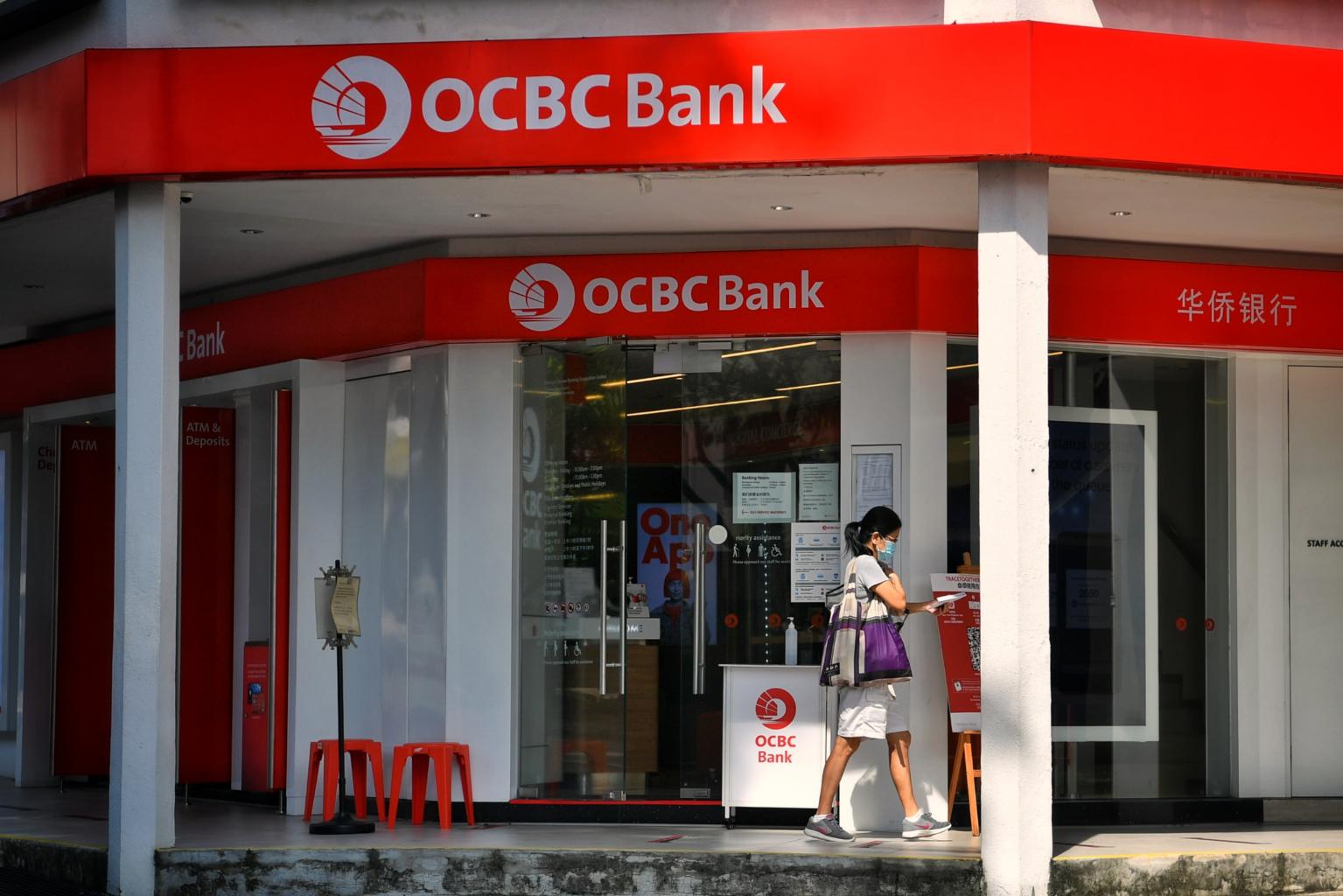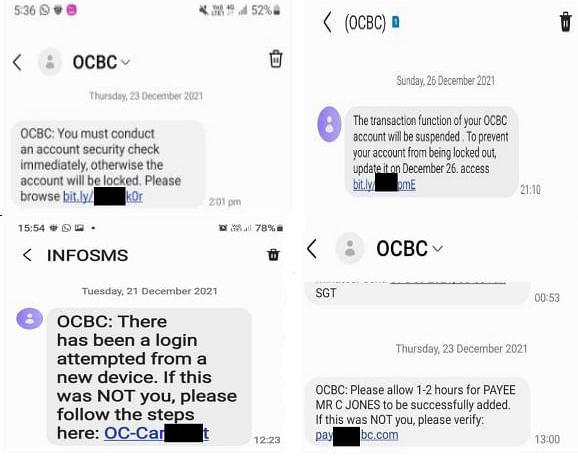Nearly 470 people lose at least $8.5m in phishing scams involving OCBC Bank
Sign up now: Get ST's newsletters delivered to your inbox

Victims received unsolicited SMSes purporting to be from the bank, claiming that there were issues with their banking accounts.
ST PHOTO: CHONG JUN LIANG
Follow topic:
SINGAPORE - Since the start of December, at least 469 people have fallen prey to phishing scams involving OCBC Bank, with reported losses totalling at least $8.5 million.
Most of the amount was lost over the past two weeks, said the police in a media release on Thursday evening (Dec 30).
Over the Christmas weekend alone, OCBC said 186 customers lost about $2.7 million.
Victims received unsolicited SMSes purporting to be from the bank, claiming there were issues with their banking accounts and they had to click on a link given in the message to resolve the issue.
The link led to fake bank websites and victims were asked to key in their Internet banking account login details.

They discovered that they had been scammed when they received notifications that there were unauthorised transactions in their bank accounts.
"Once the funds have been fraudulently transferred out of the victim's bank account, it would be challenging and difficult to recover the stolen monies," said the police.
They added that OCBC Bank has warned its customers about the phishing SMSes via several channels, including its online banking platforms, social media page and media advisories.
Having seen an increase in such phishing scams, the police are urging the public to follow crime prevention measures.
First, do not click on dubious URL links provided in unsolicited text messages. OCBC will not send SMSes containing bit.ly links.
Second, always verify the authenticity of the information with the official website or sources.
Third, never disclose your personal or Internet banking details and one-time password to anyone.
Lastly, fraudulent transactions should be reported to your bank immediately.
The police urge anyone with information relating to such crimes to call their hotline at 1800-255-0000, or submit it online. Those who require urgent police assistance should dial 999.
Despite advisories and warnings issued by the authorities throughout the year, scams of different varieties continue to be a scourge in Singapore.
According to figures released by the police in end-August, scam victims lost $168 million to conmen in the top 10 scam categories in the first six months of this year alone.
This was over 2½ times the amount lost to scammers in the same period in 2020.
Loan scams had the highest number of reported cases among scam types, with victims cheated of $10.6 million. This was followed by e-commerce scams, which saw victims lose $2.4 million.
Job and investment scams also surged significantly, with victims having lost $6.5 million, compared with last year’s $60,000.
Investment scam victims, on the other hand, lost $66.2 million, which was more than triple the $21.6 million in the same period last year.
The year-end shopping season has also seen the emergence of non-banking-related phishing scams.
Since last month, more than 300 people have fallen prey to phishing scams involving delivery companies, amid the slew of year-end online shopping events.
As at Dec 20, the police said there were at least 341 victims, who made losses amounting to at least $759,000.
These victims typically received e-mails and text messages from scammers impersonating delivery companies such as SingPost, claiming that there were outstanding payments that had to be made before the parcel could be delivered.
Victims were told to click on URL links to make payment, where they were asked to provide their card details and a one-time password. It was only later that they realised unauthorised transactions had been made with their card.
OCBC's advice to customers
- The bank will never send an SMS to inform customers about account closures or being locked out of their account.
- It will not send an SMS with a link to reactivate accounts.
- Do not click on links in an SMS. Instead, access only the bank's portal via its mobile banking app or its website.
- Do not divulge banking login credentials or one-time passwords to anyone, or key such confidential information into unverified webpages.
- Customers who are in doubt about the authenticity of any SMSes received are advised to contact OCBC at 6363-3333.

